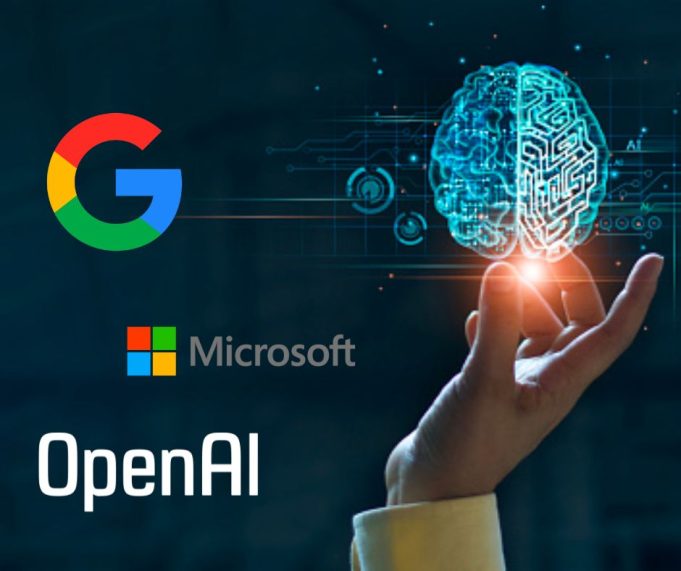Google’s parent company Alphabet is racing to integrate “Generative AI” technology into all major products, as seen with the release of ChatGPT by startup OpenAI, in order to stay competitive and capitalize on the potential of this technology, which has been touted as having a greater impact than fire and electricity.
Google is pushing its employees to focus on artificial intelligence (AI) technology, with some employees’ bonuses being tied to the productization of generative AI technology. This has driven dozens of projects integrating generative AI technology. However, this is different from the failed attempt to promote Google+ in 2011, as Google is now viewed as a leader in AI technology. The failure of Google+ served as a warning for the company, and other tech companies are also entering an all-out hype cycle around AI. Share prices have soared after companies announced integration of AI technologies, and even Facebook CEO Mark Zuckerberg has shifted his focus from VR to AI.
Google is taking steps to ensure the responsible development of new technologies, such as generative AI. Google has a deep accumulation in this area, and is a leader in the field according to a recent study. Google is balancing commercial operations and the responsible development of new technologies, and is trying to avoid pushing out technologies that may not be ready for public testing. Google employees are optimistic about the new requirements, as they feel they can now offer more and have greater product impact. Google is a sleeping giant in the AI field, and is far ahead of other companies in the industry in applying this technology to core products.
Napster, a P2P music sharing platform launched in 1999, caused a huge disruption to the music industry. It allowed users to share mp3 files, and within 4 months of going online, it had attracted more than 150,000 users. This caused a huge drop in the sales of tapes, CDs and vinyl records, and the income scale of the music industry in the following 20 years was unable to exceed the peak in 1999. In 2019, RIAA sued Napster, and artists like Dr. Dre and record companies like EMI strongly protested against it. Recently, record companies have become increasingly concerned about the potential harm AI song generation could cause to musicians, and have called for no relaxation of copyright law to promote AI development, potentially causing a Napster-level crisis for copyright protection.
Google’s “Red Mandate” has caused some industry experts to worry about the usual calculation of risk and reward. Emily Bender, professor of computational linguistics at the University of Washington, has expressed concern that companies may be unable to guide their AI products away from bias. Google has released guidelines on how to develop AI responsibly and other companies have indicated that they will continue to push forward. Google’s milestone paper “Attention is All You Need” introduced the concept of “”Transformer””, which helps AI models focus on the most important information in the data being analyzed. Dozens of AI researchers have left Google to join OpenAI, smaller startups, and companies founded by former Google employees. The competition for talent is intense as only a few research institutions have the knowledge and ability to build these models.
Napster, the revolutionary music streaming service, was shut down in 2001 after multiple lawsuits with record companies and artists. Its successor, Spotify, reached an agreement with copyright holders and became the leading streaming service. Now, AI music is becoming increasingly popular, but it is also accused of “stealing” the fruits of creators. To avoid the same fate as Napster, AI music companies must reach an agreement with copyright holders. Music companies, who had previously been resistant to streaming, have learned from Napster and are now joining the trend of AI music. To ensure success, they must find a way to ride the wheel of the times and make themselves run faster. With the right approach, AI music companies can avoid the same fate as Napster and create a successful streaming service.
Keval Desai, a former Google employee and Director of Shakti Venture Capital, uses Xerox Parc as an example of how some people or organizations have made great contributions to the development of breakthrough technologies, but the ultimate economic gains have been taken away by others. Xerox Parc’s work laid the foundation for most of the PC era, but Apple and Microsoft eventually used their technology to build business empires worth trillions of dollars. Desai warns that Google must ensure it does not become the Xerox Parc of the day, and that it must focus on both innovation and business execution in order to reap the economic rewards of its breakthrough technologies.













